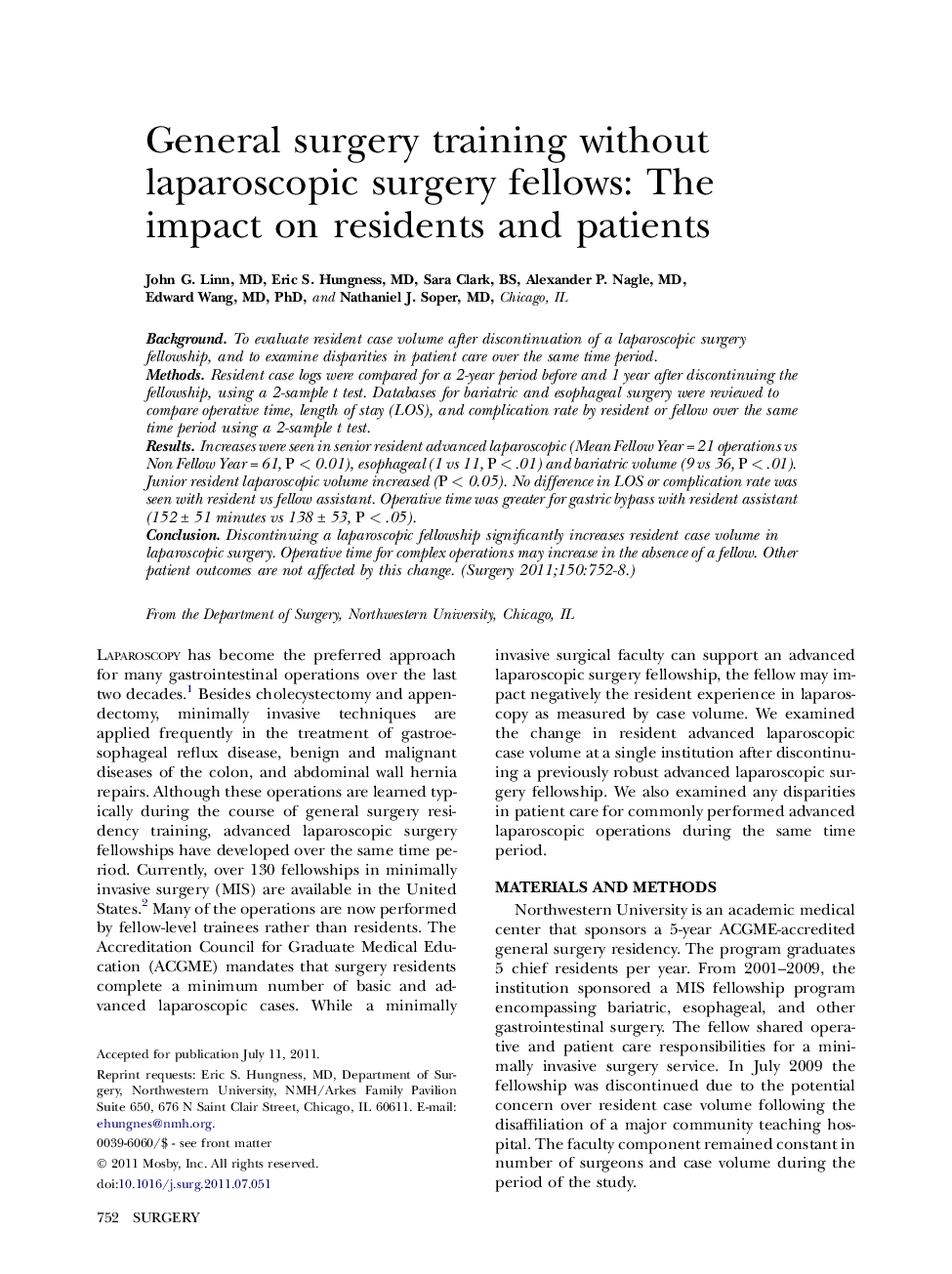| Article ID | Journal | Published Year | Pages | File Type |
|---|---|---|---|---|
| 4308578 | Surgery | 2011 | 7 Pages |
BackgroundTo evaluate resident case volume after discontinuation of a laparoscopic surgery fellowship, and to examine disparities in patient care over the same time period.MethodsResident case logs were compared for a 2-year period before and 1 year after discontinuing the fellowship, using a 2-sample t test. Databases for bariatric and esophageal surgery were reviewed to compare operative time, length of stay (LOS), and complication rate by resident or fellow over the same time period using a 2-sample t test.ResultsIncreases were seen in senior resident advanced laparoscopic (Mean Fellow Year = 21 operations vs Non Fellow Year = 61, P < 0.01), esophageal (1 vs 11, P < .01) and bariatric volume (9 vs 36, P < .01). Junior resident laparoscopic volume increased (P < 0.05). No difference in LOS or complication rate was seen with resident vs fellow assistant. Operative time was greater for gastric bypass with resident assistant (152 ± 51 minutes vs 138 ± 53, P < .05).ConclusionDiscontinuing a laparoscopic fellowship significantly increases resident case volume in laparoscopic surgery. Operative time for complex operations may increase in the absence of a fellow. Other patient outcomes are not affected by this change.
